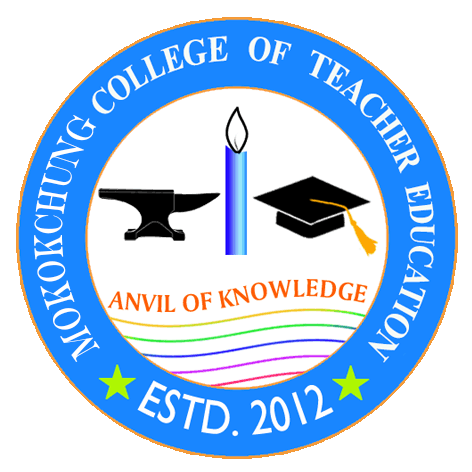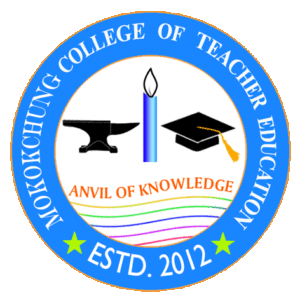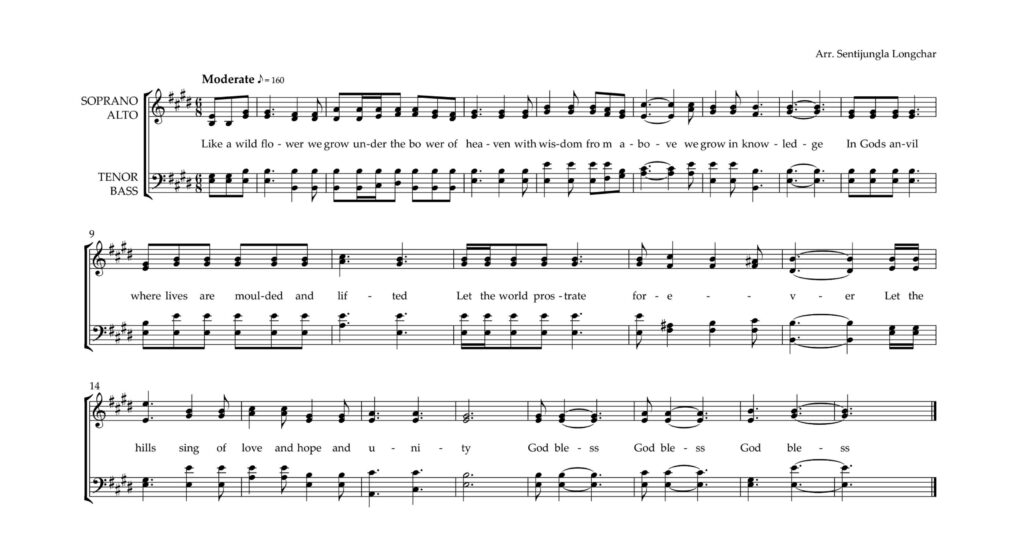Tel (O): 0369-2225444 Email Id: mcte.nagaland@gmail.com

Recognised by NCTE | Affiliated to Nagaland University | Recognised under Sec 2(f) of UGC Act, 1956

Recognised by NCTE | Affiliated to Nagaland University | Recognised under Sec 2(f) of UGC Act, 1956
About Us
COLLEGE PROFILE:
Mokokchung College of Teacher Education is a Secondary Teacher Education Institution, established by the Department of Higher Education, Government of Nagaland in the year 2012. The College was inaugurated on 22nd February, 2012. It is affiliated to Nagaland University and recognized by the National Council of Teacher education (NCTE), New Delhi. It offers the Regular B.Ed. course of 2 (two) years, based on the NCTE prescribed B.Ed. Syllabus. The College was established with the initial purpose of catering to the in- service and pre-service professional development requirements of teachers of five districts of Nagaland – Mokokchung, Zunheboto, Mon, Longleng and Tuensang. Today, however, there are student teachers from across all districts of the state.
The College (MCTE) initially started the B.Ed. programme of 1 (one) year from 2012 to 2014 and in July 2015, the 2 (two) year B.Ed. programme was introduced as per the requirements of the National Council for Teacher Education (NCTE), New Delhi.
The College is located in the North-Western part of Mokokchung (one of the district head-quarters of Nagaland) at Yimyu Ward, about 5 kms away from the main town, along the National Highway 702D and spreading over 5.05 acres. Still at a nascent stage, the strength and energy of Mokokchung College of Teacher Education results from the vision that reflective and interactive responses and actions towards educational transactions are the basis to building society and nation and conscious citizenry. MCTE is a place for professional practitioners who aspire to be humane facilitators, committed and responsible to the cause of society and actively engaged in exploring and reinventing the multiple dimensions of educational practices in the landscape of social reconstruction, giving them the space to grow amidst the ideal and peaceful environment of a calm, quiet and serene atmosphere, away from the hustle and bustle of the main town of Mokokchung.
The College has been recognized under 2(f) of the UGC Act, 1956 since March, 2021.
VISION:
Building a Transformed Progressive Society, through preparing Committed Humane Educational Practitioners.
MISSION:
Equipping Educational Practitioners with Experiences for facilitating learners develop into Conscientious Citizenry, in the landscape of Social Reconstruction.
OBJECTIVES:
Prepare Student Teachers, through manifold experiences, to:
- Develop a passion for, and commitment to teaching, learning and learners.
- Identify one’s own personal expectations, perception of self, capacities and inclinations and view appraisal and responsiveness as a continuous educative process.
- Foster Critical Thinking, Reflection, Communication, Creative Expression and Collaboration as necessary attributes of responsible members in a Progressive Society.
- Inculcate the right perspectives, attitudes and ethos towards becoming responsible, effective and humane facilitators of learning.
- Explore and acquire diverse Learning Skills and Resources for self-learning and facilitating learning.
- Understand the multi-contextual milieu of teaching-learning and learners so as to effectively respond to, and meet the needs of diverse learners and learning situations.
- Establish meaningful connections across disciplines and understand knowledge as an integrated whole.
- Develop respect for the autonomy of learners as active participants in knowledge construction through experiential learning.
- Interface the gap between theory and practice by integrating pedagogic theoretical concepts and frameworks with practice. within the learner’s experimental and larger social realities.
- Integrate academic knowledge and professional learning and experience into a meaningful whole.
- Nurture and promote democratic and humane values and develop capacities to nurture the same among young learners.
- Appreciate beauty and art forms as an integral part of human life and harness the learner’s creative expression and the capacity for aesthetic appreciation for a holistic self-development.

